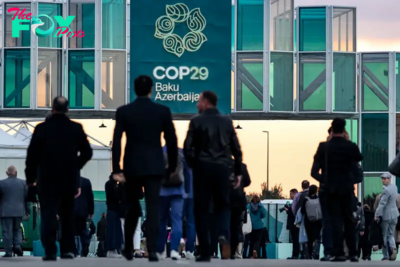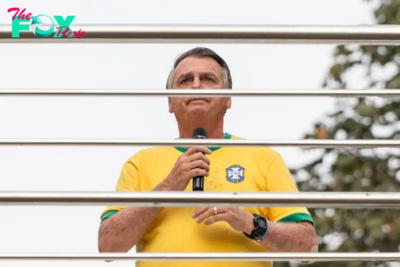World News
Taiwan Swears In New President, William Lai, Amid Tensions With China
New Taiwan President William Lai Ching-te urged China to stop its campaign of pressure of the democratic island, comments aimed at calming a dispute at the heart of a geopolitical rivalry involving the world’s two biggest powers.
“I call on China to stop intimidating Taiwan verbally and militarily, and, together with Taiwan, to shoulder our responsibility to the world to do our utmost to maintain peace and stability in the Taiwan Strait and the region,” Lai said Monday in his inaugural address on a breezy, overcast day in Taipei.
It was up to Beijing “to ensure that the world is free from the fear of war,” he said.
Read More: Taiwan’s Election Isn’t a Disaster for Xi Jinping—Unless He Makes It One
The 64-year-old ex-doctor and now former vice president said Beijing should hold talks with his government on an equal basis, while acknowledging that China was unlikely to give up its attempt to annex the island. He reiterated his previous pledges to maintain the status quo with China.
Lai also repeated former President Tsai Ing-wen’s position that the Republic of China—Taiwan’s formal name—and the People’s Republic of China are not subordinate to each other. That line got the biggest cheer of his speech from the crowd of dignitaries.
The benchmark Taiex gauge of stocks closed up 0.1% after falling as much as 0.7% during Lai’s address. The Taiwan dollar weakened 0.1% to trade at 32.24 versus the greeNBAck as of 2:05 p.m. in Taipei.
Taiwan’s relations with China have become more pressing as the People’s Liberation Army has stepped up Military activity near the island, raising the specter of a coNFLict. President Joe Biden has repeatedly said the U.S. would defend the self-governing island of 23 million people from any attack by China. Bloomberg Economics estimates a war over Taiwan would cost around $10 trillion, equal to about 10% of global GDP, dwarfing the blow from Ukraine, Covid-19 and the global financial crisis.
How Lai manages relations with China as his government takes shape will be closely watched in Beijing and Washington. Beijing cut off direct communication with Taipei after Tsai refused to accept the notion that Taiwan is part of China when she came to power in 2016.
Lai campaigned on a promise to continue many of Tsai’s polices—including embracing the U.S.—a stance that means Taipei-Beijing relations will likely remain frosty in the coming years. China has referred to Lai in the past as an “instigator of war,” and pledged to bring Taiwan under its control someday, by force if necessary. The U.S. is keen for Lai to avoid causing any surprises—especially mentions of independence—that would embroil it in potential diplomatic or Military confrontations with China.
“As Lai clearly presented a stable approach, and he avoided sensitive terms and topics across the strait, I think the U.S. should be satisfied or relieved,” Liao Yu-shih, assistant professor at Tamkang University’s diplomacy and international relations department, said in message.
Lai’s speech was unlikely to satisfy China, Liao said, “but it should be just about acceptable as there is a bit of goodwill.”
On Monday, China leveled largely symbolic sanctions on Boeing Defense, Space & Security and two other companies over arms sales to Taiwan. Last week, it said it would sanction five Taiwanese political commentators and roll out a law to punish “separatists.” Beijing is likely to respond in other ways to Lai’s speech soon.
In his speech, Lai also outlined the key elements of his economic policy, saying his administration would seek to develop Taiwan’s semiconductor, artificial intelligence, military, surveillance technology and communications industries. He also promised to raise wages and maintain a welcoming investment environment.
The U.S.’s top liaison to Taiwan, Laura Rosenberger, attended Lai’s swearing-in ceremony earlier in the day, and in a statement U.S. Secretary of State Antony Blinken congratulated him on becoming president.
“We look forward to working with President Lai and across Taiwan’s political spectrum to advance our shared interests and values, deepen our longstanding unofficial relationship, and maintain peace and stability across the Taiwan Strait,” Blinken said.
Tensions across the Taiwan Strait have escalated since mid-2022, when then-U.S. House Speaker Nancy Pelosi visited Taipei and met with top leaders. Beijing responded to that trip with Military drills that involved a mock blockade and missiles flying over Taiwan.
Taiwan’s Defense Ministry said in a statement Monday that it continued to monitor the Taiwan Strait and that its operations were normal.
Lai’s time in office could also be complicated by the opposition Kuomintang controlling the legislature, even as the economy keeps cruising along, thanks to an AI boom that has boosted exports for semiconductors and servers.
KMT lawmakers are moving to expand their powers by pushing a bill that would require Lai to deliver a state of the nation address to them every year and make a separate appearance to answer questions. Any officials found lying to lawmakers could face prison.
-

 World News21h ago
World News21h agoWorld’s Best Brands – Brazil
-

 World News1d ago
World News1d agoWorld’s Best Brands – India
-
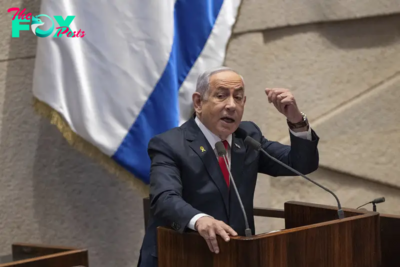
 World News2d ago
World News2d agoInternational Criminal Court Issues Arrest Warrants for Netanyahu and Hamas Commander
-

 World News2d ago
World News2d agoLandmark Bill to Ban Children From Social Media Introduced in Australia’s Parliament
-

 World News2d ago
World News2d agoAmerican and Australian Tourists Die in Laos After Drinking Tainted Alcohol
-
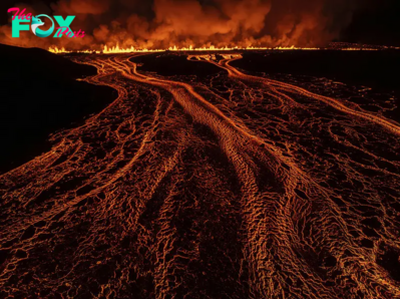
 World News2d ago
World News2d agoSee Photos of the Seventh Volcanic Eruption on Iceland’s Reykjanes Peninsula in 12 Months
-

 World News2d ago
World News2d agoMuhammad Yunus on the Race to Build Bangladesh 2.0
-
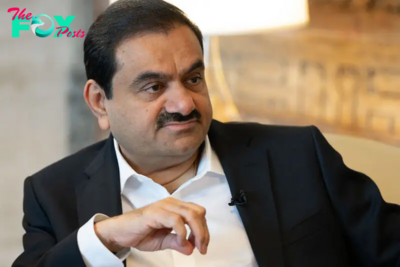
 World News2d ago
World News2d agoU.S. Charges Indian Billionaire Gautam Adani With Defrauding Investors
